
Welcome to the 2018 Spring issue of The Volunteer Post Newsletter, a newsletter for Volunteer & Partner Services Program (VPS) volunteers and partners.
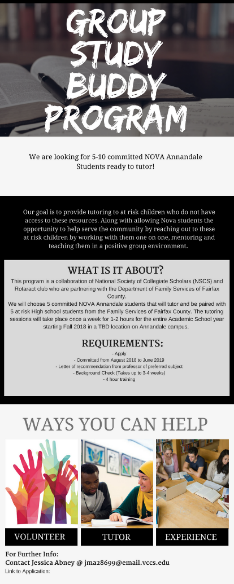 Volunteer & Partner Services’ Study Buddy Tutoring Program is coming to the Annandale campus of Northern Virginia Community College! While the partnership is still in its developmental phase, much discussion has taken place regarding a unique application and screening process, possible course credit for students in the future and campus tours for youth receiving academic support services through the program.
Volunteer & Partner Services’ Study Buddy Tutoring Program is coming to the Annandale campus of Northern Virginia Community College! While the partnership is still in its developmental phase, much discussion has taken place regarding a unique application and screening process, possible course credit for students in the future and campus tours for youth receiving academic support services through the program.
VPS has been working closely with a very special NOVA student and some of her professors. Jessica Abney is in her last semester at NOVA Community College and plans to receive an associate degree in social science this May. She is representing the Rotaract Club, a community service club, and the National Society of Collegiate Scholars, a national honor society, in the Study Buddy and NOVA partnership. She plans to transfer to an in-state four-year university, in hopes to earn a master’s degree in social work. "I am super excited to see how many children this program will help and I am hopeful that this program will last long after I transfer."
VPS is incredibly excited to partner with NOVA and can’t wait to share updates along the way. Stay tuned for more information in the next Volunteer Post!
When you think of Body Safety, it is likely that you remember the familiar “Good Touch, Bad Touch” curriculum that was used in programs across the country for many years. As society has changed and the nature of abuse has evolved with the expansion of online technology, the “Good Touch, Bad Touch” curriculum also evolved into what today is called the “Speak Up, Be Safe” curriculum.
This new curriculum has made it easier for facilitators to educate and empower children regarding ANY type of abuse and what to do if they are victimized.
In the same way that the curriculum has changed, Body Safety staff saw that it was time to change the program’s status quo in Fairfax County Public Schools.
Now, thanks to a newly formalized partnership between the Department of Family Services and FCPS, the Body Safety program is poised to reach more children in the schools. A landmark Memorandum of Agreement with the schools offers the Body Safety program access to serve children in more schools throughout Fairfax County, with special attention to children in schools that have been identified as “high risk” for factors that can lead to abuse.
Fairfax County Public Schools has always been supportive of the Body Safety program, but in the past Body Safety staff has worked with individual schools to set up these courses. Now staff will work with the social work staff at FCPS and coordinate with administrators to bring this program into more schools.
This agreement between the schools and DFS formalizes their partnership and demonstrates FCPS-wide support for the Body Safety program. The MOU recognizes the significance of this program which is offered at no cost to the schools or students. The MOU also establishes guidance for school staff to work with Body Safety facilitators as they continue to teach children to keep their bodies safe.
“We are excited about the newly formalized relationship with the schools and are looking forward to serving even more children in the coming years,” said Body Safety Manager Cecila Tatis.
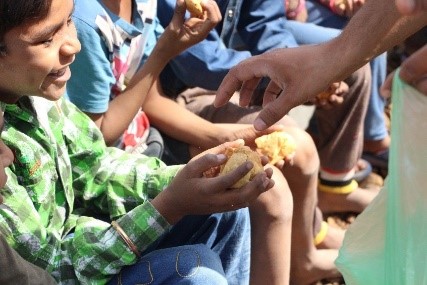 Working in the BeFriend-A-Child Mentoring Program in Fairfax County this past year has exceeded my expectations. When I began my placement through AmeriCorps, I had two modest goals: to be of service to people in need in my community; and to boost my resume to help advance my career. I have experienced so much more than I ever imagined.
Working in the BeFriend-A-Child Mentoring Program in Fairfax County this past year has exceeded my expectations. When I began my placement through AmeriCorps, I had two modest goals: to be of service to people in need in my community; and to boost my resume to help advance my career. I have experienced so much more than I ever imagined.
AmeriCorps “VISTA” is an acronym for Volunteers in Service to America, a part of the Corporation for National & Community Service. AmeriCorps places volunteers in an organization that focuses on fighting poverty in the United States. During the yearlong commitment, members are provided with a living stipend that is equivalent to the poverty line of that particular area.
The intention for the “year of service” is to focus on fighting poverty through indirect service rather than direct. That is, the VISTA does not personally work with the impoverished people in a certain community. They focusing on assisting and expanding a program that can help the community fight poverty. This concentration on indirect service can impact a larger group of people than direct service alone.
I have grown so much throughout this entire process, exceeding my every expectation. I have met and learned from incredible people doing amazing work to help the community. This experience has taught me that I can best help my community by first discovering my passions and strengths. Volunteering is much easier if you tap into your natural interests and inclinations. So, it is important to explore who I am and what makes me happy, then put that energy into helping the community.
experience I am having with AmeriCorps and my placement with BeFriend-A-Child has been life changing and I look forward to where this amazing experience will take me.
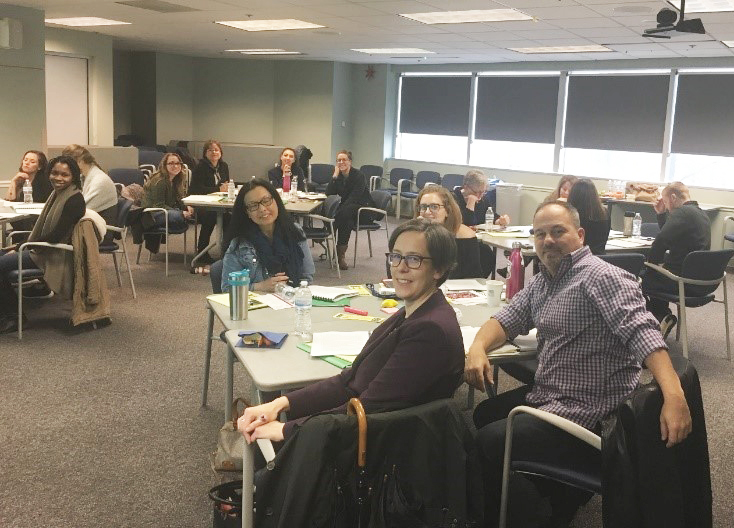 This year, the BeFriend-A-Child program celebrated its 40th anniversary. Reaching this milestone would not have been possible without our amazing volunteers.
This year, the BeFriend-A-Child program celebrated its 40th anniversary. Reaching this milestone would not have been possible without our amazing volunteers.
On February 10, the program welcomed 18 future mentors to a training. This eight-hour training included topics such as the BeFriend-A-Child policy and handbook, mandated reporting, mentee communication, building rapport, cultural competency, boundaries, sparks, trauma, reporting activities and logging their hours. Along with this material there was a panel of current mentors and mentees who answered questions.
We were pleased to have county expert Jim Pope and mentor Scott Tennent give guest presentations on topics in their areas of expertise. Jim Pope spoke about mandated reporting and answered questions about his program, Child Protective Services. Mr. Tennent, a long-time mentor, gave a heartwarming presentation on what to expect from mentoring and answered questions and concerns from the trainees.
We are excited to announce that all the mentors completed the training, and they are patiently waiting to get matched with a mentee. Each member of this year’s training has shown that they are ready to take on the responsibility of a mentee and that they are committed to the program. BeFriend-A-Child would like thank the guest presenters and the volunteers who attended the training for their time and effort. Thanks to them, our program will continue to benefit the youth of Fairfax County for years to come.
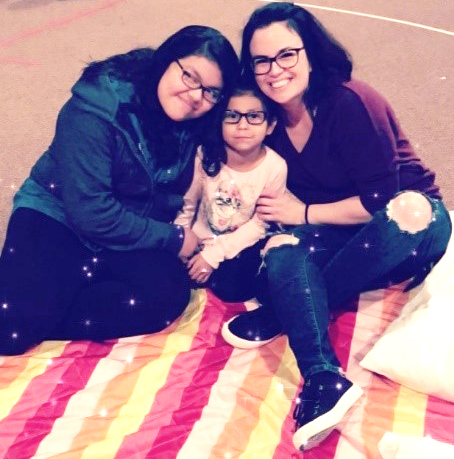
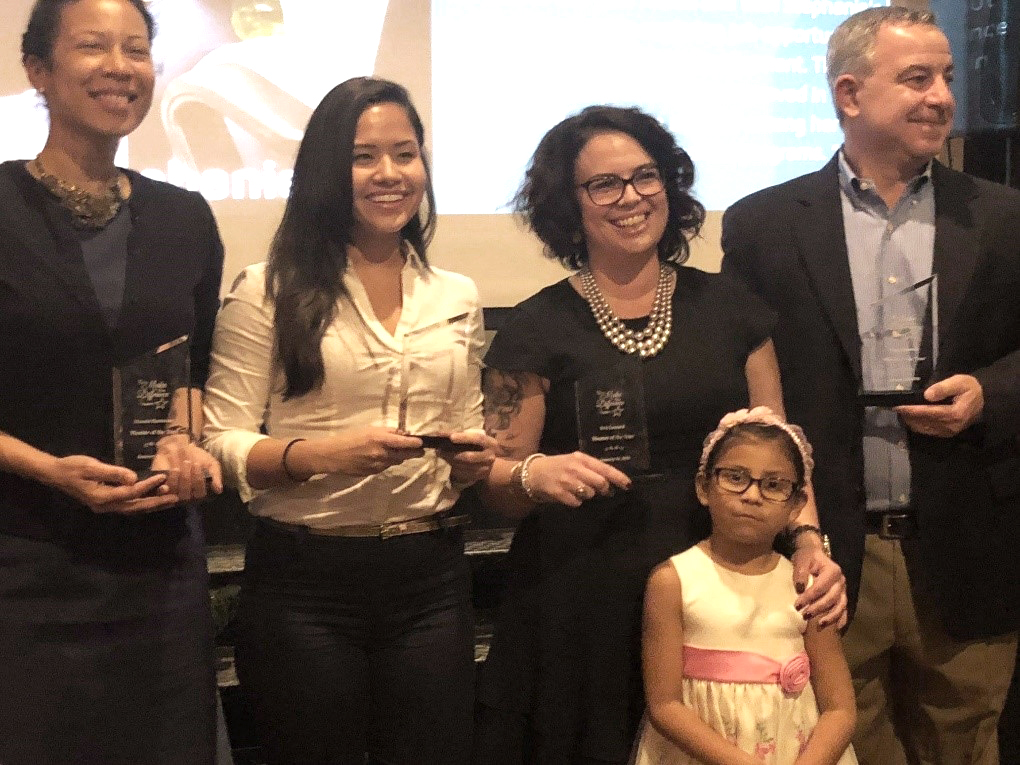 BeFriend-A-Child is pleased to announce that Beth Leonard was awarded Mentor of the Year! Each year during National Mentoring Month in January, MENTOR Greater Washington, D.C. recognizes five exemplary mentors who have gone above and beyond the minimum requirements of their program in their relationship with their mentee.
BeFriend-A-Child is pleased to announce that Beth Leonard was awarded Mentor of the Year! Each year during National Mentoring Month in January, MENTOR Greater Washington, D.C. recognizes five exemplary mentors who have gone above and beyond the minimum requirements of their program in their relationship with their mentee.
Beth has demonstrated this again and again. She has tremendously open communication with the mentee and her family, she routinely spends at least twice the required eight-hours with her mentee every month, and she often uses their time together not just for fun, but for studying and practical skills.
While that is noteworthy, Beth’s most impressive activities contribute to the entire family’s wellbeing. Her mentee’s mother has called Beth “an angel for me and my children” and became tearful when talking about all the things Beth has done for them.
Recently, when a new child was born into this family, Beth visited her mentee’s mom in the hospital to congratulate her. Beth has been there to make sure that her mentee received the eyeglasses she needed, that she understood why it was important to wear them each day and how to take good care of them. When some of the family’s older children were not doing well in school, and the mom was too sick to attend a meeting with school staff, Beth went in her place. Through extending this support, Beth has helped her mentee and her siblings to strive for more at home, at school and in the community. We are grateful to have Beth in our program and overjoyed that she has won this award.
MENTOR Greater Washington, D.C. (formerly the Mentoring Matters Coalition) is a collaboration between Deloitte, United Way of the National Capital Area and over 25 nonprofit mentoring organizations working with Washington, D.C. metropolitan area youth. It celebrates the contributions mentors and mentoring programs make to the growth and development of youth in the region.
 According to Webster the word “mentor” is simply defined as a “trusted counselor or guide.” This is very broad, as we know mentoring can take many different forms, from a workplace relationship with a more experienced advisor, to a child learning from a Scout leader or coach.
According to Webster the word “mentor” is simply defined as a “trusted counselor or guide.” This is very broad, as we know mentoring can take many different forms, from a workplace relationship with a more experienced advisor, to a child learning from a Scout leader or coach.
We wondered what mentoring means to the children that we serve at BeFriend-A-Child, and we thought it would be meaningful to share that information with our newest volunteers.
So in February, during the most recent New Mentor Training, we coordinated a panel discussion featuring several active mentors and their mentees, as well as, a mentor and mentee that have graduated from the program. Some of the relationships have lasted for over two years and others only a few months.
The children on the panel were only 11-12 years old, and though they were shy at first, in no time, they were ready and willing to provide hard truths that were spoken with grit. As an example, the mentees on the panel were asked, “What is the one greatest piece of advice you would give the new mentors?” This was quickly answered with conviction, “Be reliable and consistent, and don’t give up on them.” Other notable comments revealed that the mentors had exposed the children to things they had never tried before, and probably would never have tried if it not for the mentors, and that they were motivated by them. There were some very emotional moments during the panel session, and the soon-to-be mentors were profoundly moved by these inspirational children.
The trainees were not alone in their awe of the panel mentees. The staff of the BeFriend-A-Child Mentoring program were equally amazed and overwhelmingly proud. As the BeFriend-A-Child program continues to develop in volume and quality, we hope to further understanding of the significance of what it means to be a mentor and impact the lives of the children in our community.
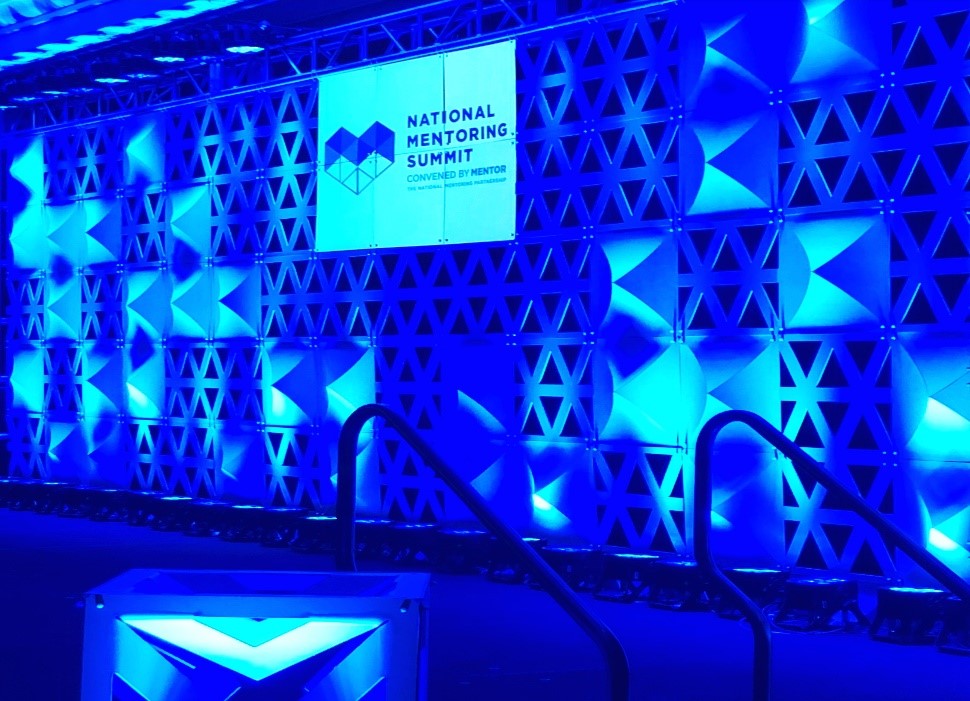 Every winter the MENTOR organization hosts the Annual Mentoring Summit at the Renaissance Hotel in Washington D.C. This gathering of professionals in the mentoring field allows attendees from all over the world to discuss mentoring in all forms and the local impact on our communities. Attending the 2018 Mentoring Summit is essential to the function of the BeFriend-A-Child Coordinator position and allows for expanded knowledge and continued growth throughout the year. Classes are offered during the summit that have a direct impact on the daily tasks of the BeFriend-A-Child position, a 1-to-1 youth mentoring program.
Every winter the MENTOR organization hosts the Annual Mentoring Summit at the Renaissance Hotel in Washington D.C. This gathering of professionals in the mentoring field allows attendees from all over the world to discuss mentoring in all forms and the local impact on our communities. Attending the 2018 Mentoring Summit is essential to the function of the BeFriend-A-Child Coordinator position and allows for expanded knowledge and continued growth throughout the year. Classes are offered during the summit that have a direct impact on the daily tasks of the BeFriend-A-Child position, a 1-to-1 youth mentoring program.
Summit attendees learn modern and exciting ways to interact, teach, and engage mentors, mentees and sponsors. They also learn about recruiting, training, managing, and supporting quality mentors. By examining and interacting with other mentoring coordinators, information flows into the BeFriend Program that can be implemented all year. This summit is a wonderful opportunity to meet and network with inspired individuals in the spirit of something greater than any one person. Mentoring makes the difference in many of our lives and the Mentor Summit is a great way to keep the spirit of mentoring thriving!
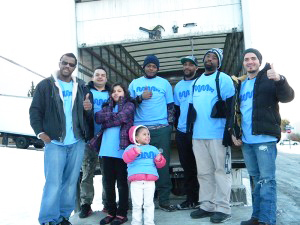 VPS is proud to announce that we are officially partnering with The Mighty Movers, a locally owned and operated full service moving company. Families involved with the Children Youth and Families division of Family Services can be referred to Mighty Movers for help with transporting donated furniture or moving services.
VPS is proud to announce that we are officially partnering with The Mighty Movers, a locally owned and operated full service moving company. Families involved with the Children Youth and Families division of Family Services can be referred to Mighty Movers for help with transporting donated furniture or moving services.
The Mighty Movers owner, Cliff Anderson, and his staff are well aware of the stress and headache of a move. In fact, it was a frustrating experience with another moving company that motivated Cliff to open his own moving business providing residential, commercial and junk removal services.
Cliff moved to the United States from Honduras as a young child, and spent 10 years as a Merchant Marine with the Coast Guard before starting The Mighty Movers. The company is focused on providing the best moving experience for families and is committed to giving back to the community.
The Mighty Movers take pride in taking the fear out of moving and providing friendly service with a smile. Cliff is very excited to provide this support to CYF families who can’t afford the expense of moving. In an effort to help as many people as possible, The Mighty Movers will provide moving services to one or two families each month.
The Volunteer Administrative Assistants program began in the fall of 2013 with two volunteers who helped at the 6th floor reception desk in our Pennino office. The program was very small at the time but helped assist the Foster Care & Adoption Program by answering phones and greeting clients. Today, the program has nearly 20 volunteers helping on average 2-3 days per/week in several Department of Family Services programs at various sites including: Children, Youth, & Families, Human Resources, Finance, Self Sufficiency, and Information Technology.
Volunteer Administrative Assistants offer support to CYF by managing the reception desk on the 5th and 6th floors, entering data for various programs, putting together packets, brochures, flyers, and mailers for staff, helping manage several databases including the Volunteer Management Database which entails entering volunteer hours and managing files. Volunteer Administrative Assistants provide much needed support in HR by maintaining the records room, helping with filing, and organizing records. In Information Technology, volunteers have helped with data entry and documenting equipment needs, and in Finance they have worked on several budget-related projects.
One of the amazing components to this program is that it provides professional development opportunities for volunteers to improve their knowledge and expertise. Volunteers use this time and experience to gain new skills and sharpen existing skills to make themselves more marketable in the workplace. Several volunteers have landed jobs through their dedication and employers’ recognition of the value they provide to the county. Without this Administrative Assistants Program and its volunteers, staff would not be able to handle the workloads they manage. Thank you to all the volunteer administrative assistants. You are all wonderful!
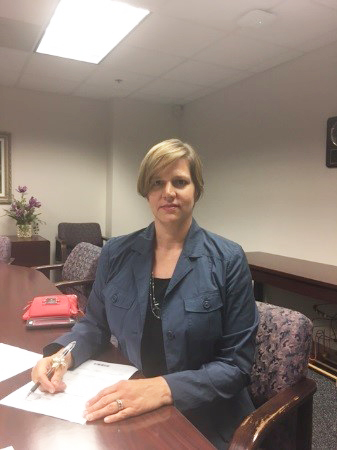
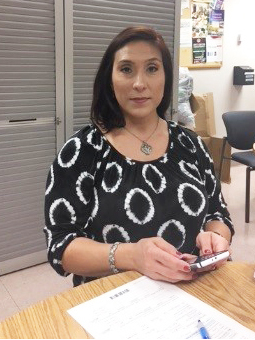
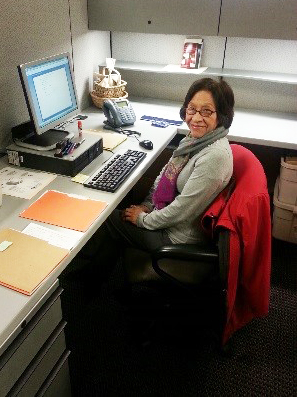
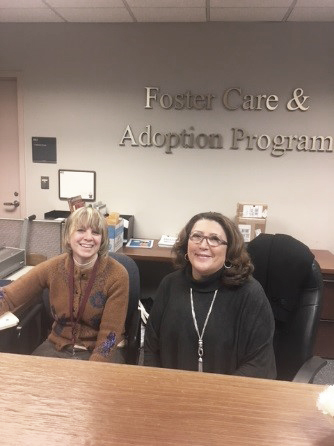
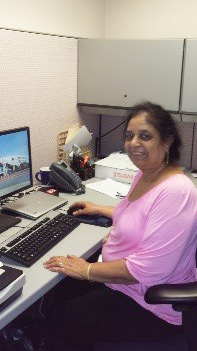
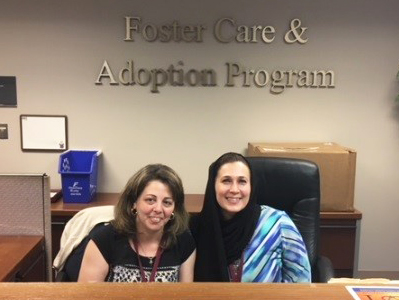
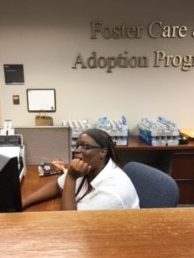
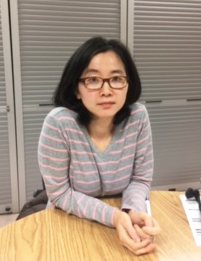
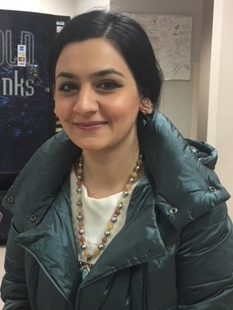
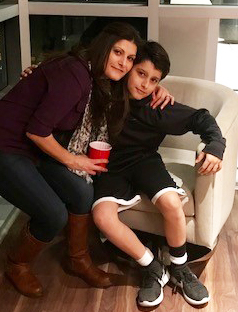
When you think of virtual reality, what do you picture? Big head sets, oversized chairs, and an intense racing game or cliff diving experience? What if I told you that virtual reality is now becoming a trend in not only gaming, but also in how individuals conduct business and even in how they serve their communities. Virtual reality and virtual volunteering are becoming increasingly popular and for several good reasons. Keep reading for an amazing example of how virtual reality is being incorporated into a program in Arizona and why virtual volunteering is spreading across the nation.
Virtual Reality Educational Pathway (VREP)
The Arizona Senior Academy (ASA) was established to support the active engagement of seniors in Tucson, Arizona with civic life, intellectual stimulation, and cultural enrichment. Academy members collaborate with each other to maximize the use of their skills with a focus on group outreach effort by sharing their “…time and talents for the greater good,” says ASA’s website.
In 2012, volunteer members of ASA joined with the local Vail School District and Raytheon to develop the first Virtual Reality Educational Pathway program. VREP is an educational initiative that unites schools, industry, and communities to enhance the learning experience by connecting with student interest through the use of virtual reality and 3D computer technology.
Through the ASA Outreach program, Desert Sky Middle School received several thousand dollars to purchase hardware necessary to support the virtual reality project. In addition, several academy volunteers were trained as mentors to equip them to directly engage with students to accelerate and stimulate their learning.
ASA’s website continues to propose that virtual reality capability can accomplish several key academic goals:
- “It boosts students’ learning experience, particularly in science, technology, engineering and mathematics, by showing how theoretical knowledge can be applied in real-world circumstances.
- It has proven to be a powerful means of developing general purpose creativity and collaborative problem-solving skills.
- VR’s game-like characteristics stimulate many talented but under-achieving students to “buy in” to academic objectives. For this category of student, a full point improvement in grades is not uncommon.”
ASA and its partners have definitely paved the way for VR in the classroom. One can only ponder the many other ways in which VR could help the community, like facilitating the development of social skills in youth, or even teaching cognitive skills to those undergoing regular behavioral therapy. Regardless of how long the process takes, ASA and the VREP program have clearly indicated how VR can successfully be incorporated into our public school system. What’s next up in the world of VR and volunteering? We’ll have to just wait and see.
Virtual Volunteerism
The ability to serve one’s community remotely is quickly becoming a new trend in volunteerism. Volunteer onboarding, training, coordinating, and communicating can all now take place within the comfort of one’s home or local library. Programs that desire to reach a broader scope of volunteers or even clients are now incorporating virtual volunteering into their program’s overarching mission and vision. The rise of technology has had a huge influence on the interest and commitment levels of both those serving volunteer programs as well as those coordinating them. Volunteers coast-to-coast are interacting and learning together through chat rooms and other simulated environments. Would you ever consider virtual volunteering? Why or why not?
The volunteerism industry is developing at a faster and faster rate every day, and we as volunteers and volunteer managers must stay up to date on trends and best-practices. Regardless of whether you prefer virtual reality, virtual volunteerism, or the gold standard of direct-service volunteering, knowledge is power. Without this power, we are unaware of the many new and increasingly popular ways there are to serve and support our community. What’s your ideal way of serving your community?
Early, one cold and dreary February morning, Calvin Robertson, picked up another volunteer outside the Pennino building. We headed to an elementary school in South County to discuss Body Safety with 5th and 6th grade students.
Although Calvin retired from the county nearly two years ago, he continues to work part time with the Fatherhood Engagement program, and he graciously volunteers to teach Body Safety’s “Speak Up, Be Safe!” curriculum to children, as much as he can.
Calvin is not usually available on Fridays, much less for an early morning class. He has mentioned on several occasions that Fridays are his day to recharge; and he prefers later classes. Despite that, he was excited to greet the children and share this important lesson with them.
After teaching the class of 6th graders, a female student approached Calvin and thanked him for the class. She explained that what she learned during his presentation had helped her to understand that she was sexually abused when she was just 5 years old. Because of the commitment Calvin made to teach the class that day, this girl was able to begin the journey to recovery from the sexual trauma she suffered.
Although six years had gone by since the abuse happened, staff learned that the offender had been incarcerated and later passed away. School staff followed up with the girl and offered her additional services, and hopefully she will receive counseling so she can better recover from happened to her.
Sadly, this is not an unusual experience, as too many children suffer child abuse. The opportunity to make a difference for children like this girl motivates Calvin and many other volunteers to keep showing up, even on dreary mornings, to teach children about Body Safety.
Our volunteers and partners are the invaluable backbone of Volunteer & Partner Services Program (VPS). This newsletter is published three times a year and shares about events, volunteer data, volunteer opportunities or other general information. We hope this newsletter will keep us all connected!
Whether you’re a seasoned or new volunteer, partner or sponsor, knowing the history of the organization you’re supporting is very important. VPS was developed in September 2013 with the purpose of recruiting top-level volunteers to provide direct or indirect services to prevent child abuse and neglect. VPS is part of Child Abuse and Neglect Prevention Services within the Department of Family Services Children, Youth and Families division. VPS started with four programs and after gaining momentum began recruiting volunteers for two additional programs. VPS manages the Administrative Assistant Program, BeFriend-A-Child Program and Body Safety Program - Speak Up Be Safe and also recruits volunteers for the Adopt-A-Family Program, Father Engagement Program for Volunteers - Dads Parenting Groups and Parenting Education Program for Volunteers. Each program has individual needs and functions that require volunteers with an array of skill sets. Volunteers continue to apply to help with hopes of making a difference in the community. VPS is honored to recruit, train and provide opportunities to those interested in the prevention of child abuse and neglect. We continue to provide top-level volunteers for the community as we fight to prevent and end child abuse and neglect.
Browse through past newsletters in the archive.

